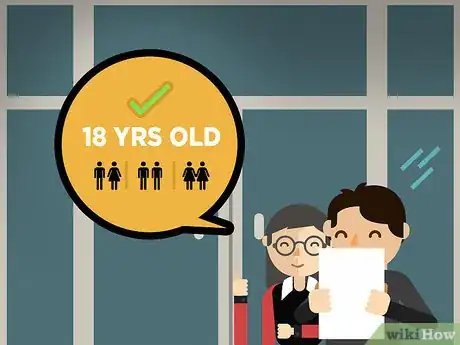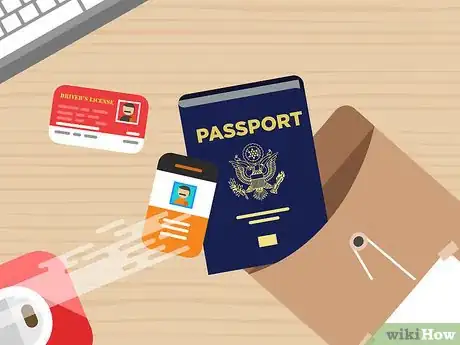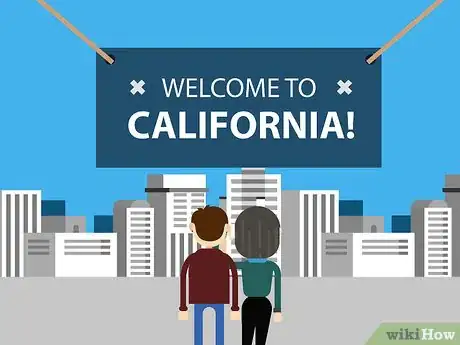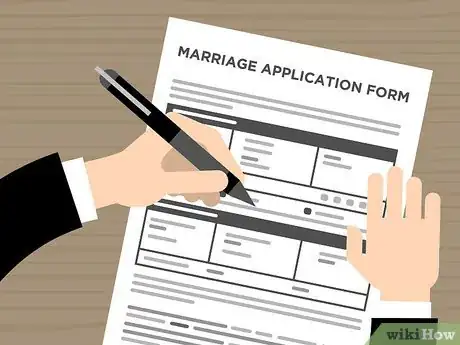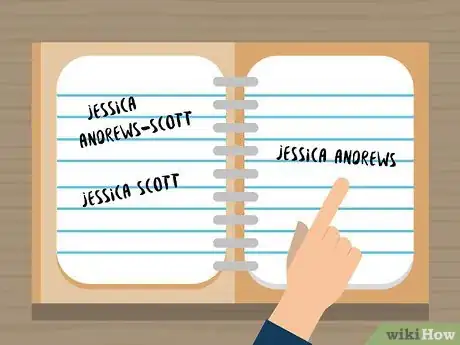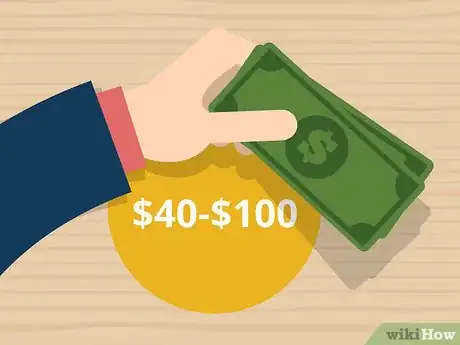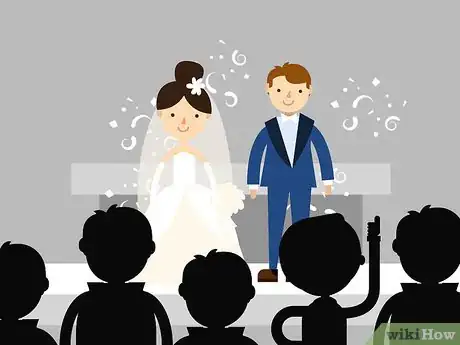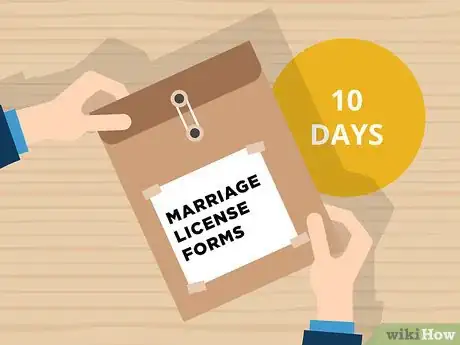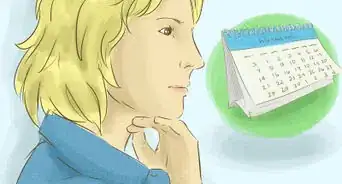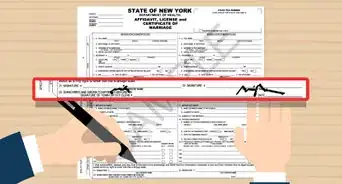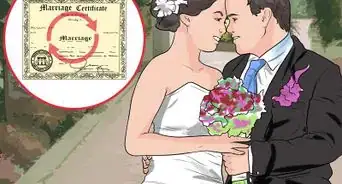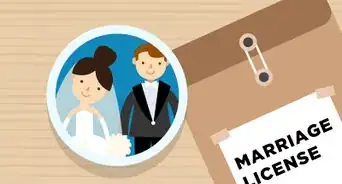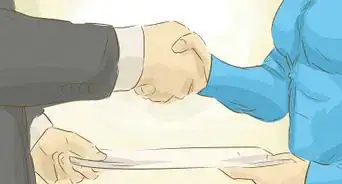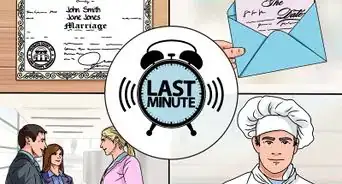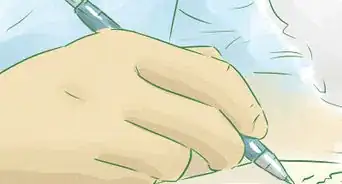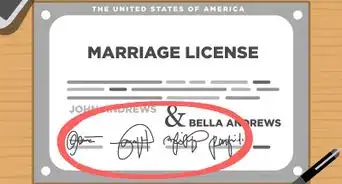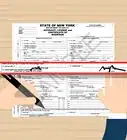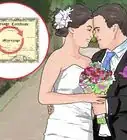This article was co-authored by Clinton M. Sandvick, JD, PhD. Clinton M. Sandvick worked as a civil litigator in California for over 7 years. He received his JD from the University of Wisconsin-Madison in 1998 and his PhD in American History from the University of Oregon in 2013.
wikiHow marks an article as reader-approved once it receives enough positive feedback. In this case, 93% of readers who voted found the article helpful, earning it our reader-approved status.
This article has been viewed 478,375 times.
If you plan to wed in the state of California, you'll need to apply for a marriage license at one of the fifty-eight County Clerk offices to make the marriage legal. Once you've applied, there is no waiting period. You and your intended can tie the knot immediately or wait up to ninety days before the license expires. By knowing what information you'll need, you can simplify the application process for a marriage license in California.
Steps
Preparing to Apply
-
1Verify you and your partner can marry in California. To get married in California, you and your partner cannot already be married to each other or married to other people. Other laws governing marriage in California include:
- Each party must be at least eighteen years of age. California offers both public and private marriage licenses. No minor may apply for a private marriage license. Minors applying for a public marriage license must have the written consent of a parent or legal guardian (emancipated minors included), as well as permission from a California Superior Court Judge.[1]
- You must marry in California. You can marry in a county other than where you receive the license, but it must still be in California.
- You must have at least one witness at your ceremony for public marriage licenses. Though the certificate has spaces for two witnesses to sign if you prefer.
- Couples applying for a confidential marriage license must sign an affidavit attesting to the fact that they live together as spouses at the time of the application. A confidential marriage is one that does not get entered into public record. Any persons other than the married couple requesting a copy of the marriage license must present a court order to receive one.[2]
- To find out more information about eligibility requirements by county, visit the California Department of Public Health at: http://www.ca.gov/HomeFamily/Marriage/
-
2Gather the necessary documents. You and your soon-to-be spouse must have valid picture IDs with dates of birth listed. If you were married before, you will need to provide the date when your marriage ended. Some counties may ask for a copy of the final judgment if an earlier marriage ended by dissolution or nullity, which is a declaration by the court saying the marriage never happened rather than a divorce.[3]
- Examples of valid IDs include a driver's license, state-issued ID, passport, or other government-related documents.
- Some counties may require a copy of your birth certificate as well.
Advertisement -
3Come to California. You and your partner are not required to be residents of the state in order to get married in California. You must be present in the state to marry, though. You may not be married by proxy.[3] You can even apply in one county and marry in another county as long as it's in California. However, the license must be filed in the county where you applied.
- An overseas stationed member of the Armed Forces of the United States can enter into the marriage via the appearance of an attorney.[3]
- To find out specific county information such as hours, fees, and locations, visit the California State Association of Counties (CSAC) website at: http://www.csac.counties.org/
Completing the Application
-
1Complete the application. Some counties will allow you to download the application beforehand and complete it prior to your arrival at the county clerk's office. If you choose to complete the application in person, consider making an appointment. Walk-ins are usually taken on a first come, first served basis, and the wait can be lengthy.[4] Both partners will have to answer information that includes:
- Full names
- Dates and place of birth
- Whether either party has been divorced and the date
- Full names of each applicants' parents and places of birth
- Who will be performing the marriage
- Social Security numbers.
-
2
-
3Pay the appropriate fee. The marriage license fee varies by county, ranging from $40 to $100. Most counties will accept credit card or debit payments, but some may only accept cash.
-
4Get married. Marriage licenses are valid for ninety days from the date of issuance. If you do not get married within the time frame, then you will have to purchase a new license.[3]
- California permits various people to solemnize marriages, including priests or rabbis, retired or active judges or commissioners of courts, judges or magistrates of the US, a (retired or active) Supreme Court Justice, an active legislator or constitutional officer, or anyone deputized by the commissioner of civil marriages.[6] [3]
- For a standard marriage, you need one witness to sign the marriage license. If you are entering into a confidential marriage, you do not need a witness.
-
5Return the completed license within ten days of the wedding. The marriage officiant has only ten days after the wedding ceremony to return the completed license to the county recorder where you purchased the license.
- In cases of a confidential marriage, the license is returned to the county clerk's office for registration.
Things You'll Need
- Government-issued photo identification such as a driver's license, state-issued ID, or passport
- Proof of divorce or death of spouse (if previously married)
- Birth certificates (if applicable)
- Social Security cards (if applicable)
- Licensing fee
References
- ↑ Cal. Family Code §302
- ↑ https://www.cdph.ca.gov/Programs/CHSI/Pages/Types-of-Marriage-Licenses-.aspx
- ↑ 3.03.13.23.33.4https://www.cdph.ca.gov/Programs/CHSI/Pages/California-Marriage-License-General-Information.aspx
- ↑ 4.04.14.2http://ocrecorder.com/services/marriage/
- ↑ Cal. Family Code §306.5
- ↑ Cal. Family Code §§400-402
About This Article
To apply for a marriage license in California, start by checking the Department of Public Health website to verify that you and your partner are eligible to be married. Then, bring the required documents, such as birth certificates or court papers from any previous marriages, to the county clerk’s office to complete your application. If you'd like to reduce your wait time, you may want to consider making an appointment. Additionally, be prepared to pay a fee ranging from $40 to $100, and make sure to get married within 90 days. For more tips from our Legal reviewer, like what kind of information to have ready for the application, read on!
